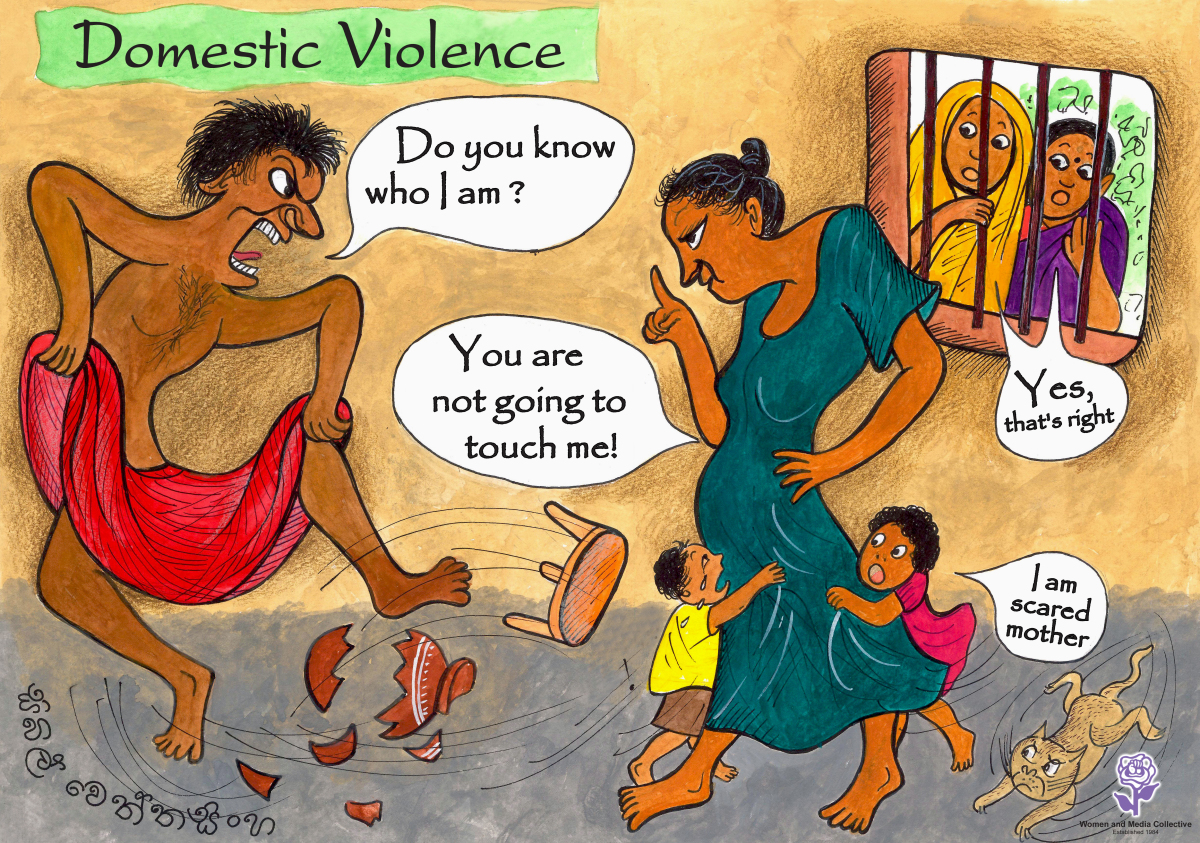Domestic violence
FACTS
Prevention of Domestic Violence Act was introduced in 2005 to address violence that arise out of personal relationships within home and outside. Despite legal recognition, prevalence and severity of domestic violence in Sri Lanka remain causes for concern. Case studies shed light on domestic violence that ranges from beating and economic abuse to severing of limbs, causing severe burns[1] and murder[2]. Almost always women are the victims/ survivors of domestic violence and stigma, social and economic vulnerabilities and lack of supportive access to justice system prevent women from recognising and reporting domestic violence. It was noted in a study of 796 survivors that 90% of survivors suffered several years of domestic violence before seeking help (Women in Need, 2012).
RECOMMENDATION
- Implement national level awareness programmes. Incorporate sharing of information on domestic violence in to existing maternal health services.
- Educate the Police of the gravity of domestic violence. Use a rights based approach when addressing violence.
- Make available legal aid and counselling for survivors of domestic violence.
- Include in the school curriculum relationship education that addresses gender inequality and violence.
FACTS
Supposed mediation of domestic violence cases by the Police and community Mediation Boards that aim to facilitate an amicable settlement with the view of ‘protecting the family unit’, perpetuate domestic violence.
The Women in Need study noted that 70% of survivors had gone to the Police seeking help to stop violence and the Police had given advise. In 6% of the incidents, Police had filed court cases and 2% of the cases had been referred to the Mediation Boards. In 75% cases violence did not stop. In 25% of the cases violence stopped, but in 86% of those, violence started again later. 50% had not sought the help of the Police again.
Not only does mediation in cases of domestic violence proves ineffective but also where the majority of victims is women, it has serious implications on equality. This process gives the continuation of abuse the outlook of state sponsored domestic violence.
RECOMMENDATION
- Prevent the law enforcement agencies from normalizing and trivialising violence.
- Prosecute perpetrators.
- End the practice of giving advise by Police in attempts to have the parties to settle. Incorporate family counselling by a qualified professional in to the process of obtaining redress, so that parties have an opportunity to reach an amicable settlement.
- Encourage the Police to apply for Protection Orders under Prevention of Domestic Violence Act 2005 as a first step upon evidence of domestic violence.
FACTS
Marital rape is not recognized as a crime in Sri Lanka. A multi district study[3] in 2012 shared that one in five ever-partnered men aged 18–49 reported perpetration of sexual violence against an intimate partner.
RECOMMENDATION
- Recognise rape within marriage as an offence.
FACTS
Sri Lankan law still allows for child marriages within the Muslim community. Law on statutory rape does not apply to these cases.
RECOMMENDATION
- Reform law immediately to criminalise child marriages.
[2] https://www.colombotelegraph.com/index.php/tortured-sri-lankan-muslim-child-marriage-victim-dies-police-soft-pedals-capture-of-murderous-husband/
[3] http://www.care.org/sites/default/files/documents/Broadening-Gender_Why-Masculinities-Matter.pdf
Sri Lanka BRIEF/ UPR Papers – 06/2017 Read as a PDF SLB-UPR papers No 06 Domestic violence
